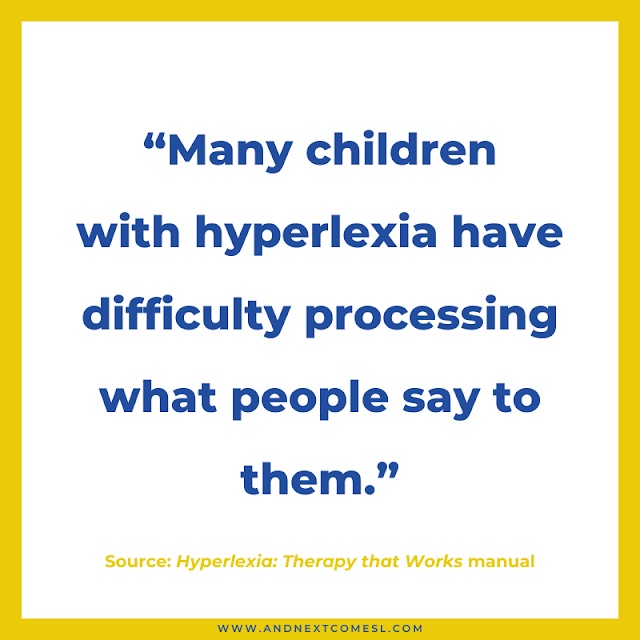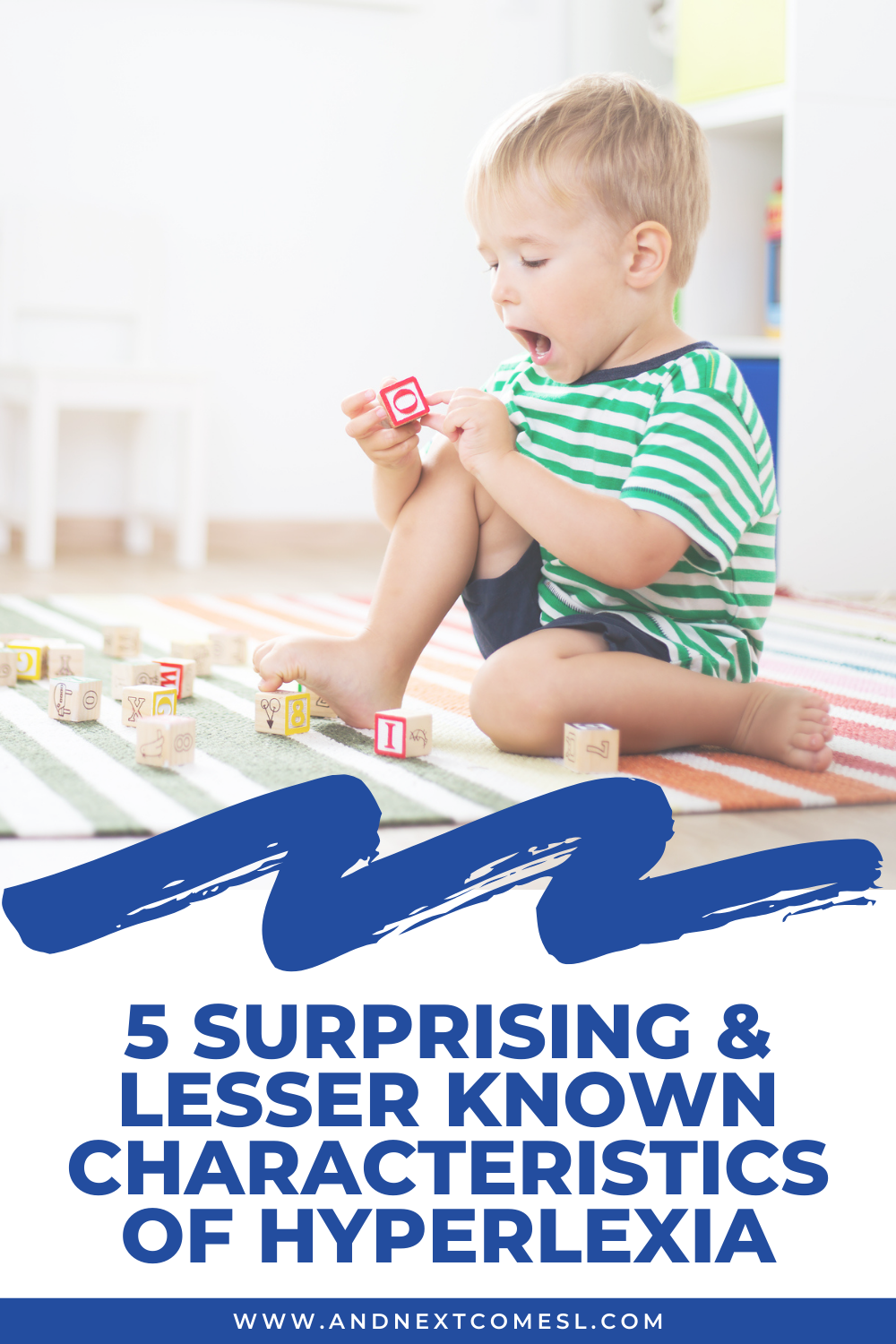People familiar with hyperlexia are usually familiar with the more common hyperlexia "symptoms" of early precocious reading, comprehension difficulties, intense letter fascinations, and whatnot.
FYI, I prefer to use the terms traits or characteristics, which is why I put symptoms in quotations in the previous paragraph. Anyway...
There are certainly a lot of other traits that differentiate a hyperlexic learner from a non-hyperlexic one, many of which you can see here.
However, there are a few other traits that don't get discussed as much, even though they're important for understanding the unique hyperlexic learning style. So here are 5 surprising (and lesser known!) characteristics of hyperlexia.
5 Lesser Known Characteristics of Hyperlexia
I bet you've seen most - if not all! - of these traits in your hyperlexic child. They're quite common. But understanding these characteristics are important if you want to best support your child.
1. Air writing is common among hyperlexic children
Maybe you've seen your hyperlexic child "write" words or "draw" letters in the air before.
This air writing is so common that I've officially declared it a missing trait from the list of hyperlexia signs. I can just do that, right?
There are lots of reasons why hyperlexic kids do air writing, which I've discussed in depth here and on Instagram.
It's worth noting that air writing isn't something to discourage. It is incredibly beneficial for hyperlexic learners to engage in air writing.
2. Hyperlexics learn language via gestalt processing
Gestalt processing is a just a fancy way of saying someone learns language in chunks, which explains why many hyperlexic children have echolalic speech.
You can read more about gestalt learning and hyperlexia here and learn more about what it means to be a gestalt learner.
But here are a few additional resources to help you learn more about this topic:
- Hyperlexia & Gestalt Processing from CHAT
- Articles on Echolalia & Gestalt Language by Dr. Barry M. Prizant
3. Auditory processing delays are common
Once you have a better understanding of their gestalt processing of language (did you check out those resources yet??), you can see why hyperlexic kids might also struggle with auditory processing. Especially when you factor in the issues that many of them have with comprehension and WH questions as well. No wonder it's so tricky to process spoken language for them!
You've probably noticed these auditory processing issues in your hyperlexic child before...
Perhaps you ask them a question and they either don't respond or they give an automatic response of "Huh?" or "I don't know." They might give this default response even when it is a question they clearly know the answer to. Or they might say these phrases and then answer correctly afterwards.
As Adkins et al. mention in Hyperlexia: Therapy that Works Manual, "Many children with hyperlexia have difficulty processing what people say to them."
This automatic response of "I don't know" is usually a coping mechanism hyperlexic kids use to buy themselves time to process and make sense of what was being said to them.
I know my son did this all the time and people mistakenly assumed he didn't know the answer because he would say "I don't know."
What you can do is work on teaching your child a script along the lines of "Let me think..." or "Give me a second" to replace the default "I don't know."
Another way to help with auditory processing is to pair the auditory with the visual by writing things down. So that means turning on closed captioning when watching TV, for instance.
You can get more auditory processing strategies for hyperlexia here.
4. Pronoun reversals
You might notice that your hyperlexic child speaks in third person or mixes up pronouns, especially during the preschool and early elementary years. That's what I mean when I say pronoun reversals.
But just think about how complex pronouns are. They're vague and require inferencing skills. I mean sometimes "you" can refer to you (pointing aggressively at the screen right at you) and other times it can refer to "me." But others will use "she" and "her" to refer to me. Ugh, English is so hard!
However, the issues with pronouns being mixed up has to do with the fact that they're gestalt language processors. They learn language in chunks so they often echo back the chunks of language that they hear exactly as they first heard them.
So while pronoun reversals are a common trait among hyperlexic kids, it's really nothing more than them repeating those scripts that they hear.
You can read more about pronoun reversals here.
5. Many hyperlexic children have unusual fears
We're talking fears of door knobs, anything that crawls, animated characters, the Happy Birthday song...a lot of these things can cause major anxiety for hyperlexic kids.
So if your child has a somewhat unusual fear, then you might be a bit reassured knowing that your child isn't alone.
There's a reason why I have lots of anxiety resources here on the blog after all.
A Recap of the Lesser Known Characteristics of Hyperlexia
People are always surprised to learn about the above characteristics.
I mean you've likely noticed the air writing, but didn't know it necessarily had a name, a purpose, or just how common it is among these kids.
Or maybe you didn't realize how common anxiety and unusual fears were with hyperlexic kids.
Or that auditory processing challenges were common.
I think, of all of these characteristics though, the one that people find the most interesting is the gestalt language processing piece. It often explains so many things you notice with hyperlexic learners (e.g., those pronoun reversals!) so it's definitely worth diving into and learning more. I'd start with these resources, if you'd like to learn more.
After reading through all of these, I bet you recognize most of these characteristics of hyperlexia in your own child. Which one surprised you the most?









